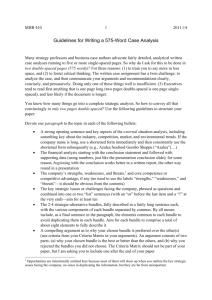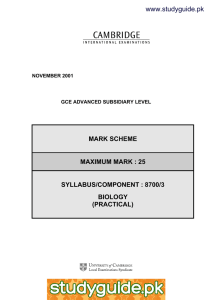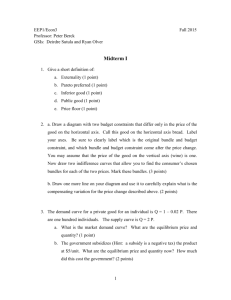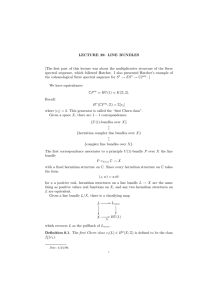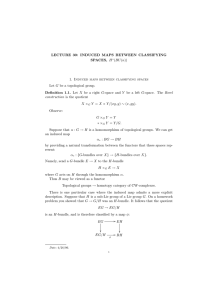Supplementary Material
advertisement
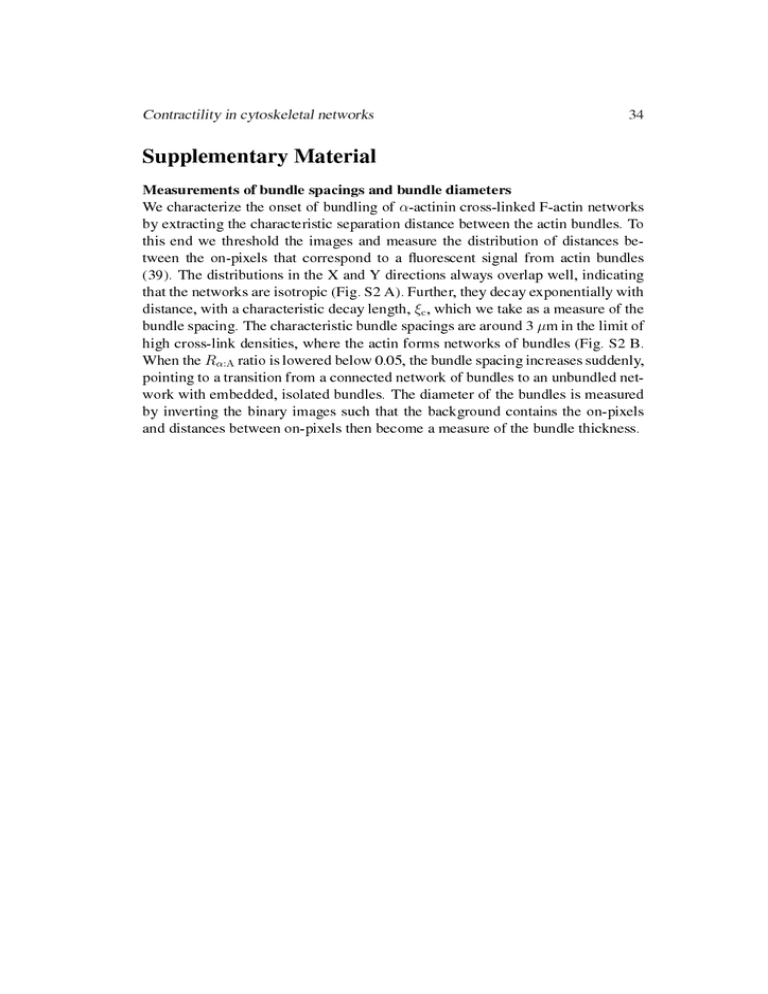
Contractility in cytoskeletal networks 34 Supplementary Material Measurements of bundle spacings and bundle diameters We characterize the onset of bundling of α-actinin cross-linked F-actin networks by extracting the characteristic separation distance between the actin bundles. To this end we threshold the images and measure the distribution of distances between the on-pixels that correspond to a uorescent signal from actin bundles (39). The distributions in the X and Y directions always overlap well, indicating that the networks are isotropic (Fig. S2 A). Further, they decay exponentially with ξc , which we take as a measure of the bundle spacing. The characteristic bundle spacings are around 3 µm in the limit of distance, with a characteristic decay length, high cross-link densities, where the actin forms networks of bundles (Fig. S2 B. When the Rα:A ratio is lowered below 0.05, the bundle spacing increases suddenly, pointing to a transition from a connected network of bundles to an unbundled network with embedded, isolated bundles. The diameter of the bundles is measured by inverting the binary images such that the background contains the on-pixels and distances between on-pixels then become a measure of the bundle thickness. Contractility in cytoskeletal networks 35 t = 120 s t = 540 s t = 960 s t = 1200 s t = 1600 s 2.6 mm XY plane 3 D rendering XZ plane Figure S1: Actin-myosin II networks cross-linked with scopically. The α-actinin α-actinin contract macro- to actin molar ratio is 0.11, and the myosin to actin molar ratio is 0.020. Images in the same row correspond to the same time point. Left column: two-dimensional XY-confocal slices taken at half the droplet height. Middle column: a three-dimensional rendering of XY-confocal slices of the uorescently labeled F-actin network (orange) contracting within the water droplet (blue). Right column: side views along the XZ-plane through the center of the gel. Image reconstruction was done using Z-stacks of images spanning about 1 mm in the axial direction for each time point. Video 1. Contractility in cytoskeletal networks 36 0 10 9 8 −1 10 7 6 ξc [µm] P(ξ) −2 10 −3 10 5 4 3 −4 2 10 10 1 A −5 0 10 20 30 ξ [µm] 40 0 0 B 0.1 0.2 0.3 0.4 Rα:A Figure S2: Characterization of the network microstructure of α-actinin cross- linked F-actin networks. (A) Distribution of distances between bundles measured in the X (empty symbols) and actinin:actin ratios Rα:A = 0.01. Rα:A . An exponential set of data with Po and ξc Y αRα:A = 0.13, Squares: Rα:A = 0.04, Stars: ξ distribution, P = Po exp(− ), is tted to each ξc (lled symbols) direction for three different Circles: as tting parameters. Inset: typical binary image after thresholding. (B) Characteristic bundle spacing (squares). ξc as a function of the ratio Rα:A Contractility in cytoskeletal networks 37 Figure S3: Force calculations based on change in curvature at the gel surface. (A) The curvature of the gel/oil interface is found by tting a circle to the interface. The force is found from Laplace law (Eq. 1) by using the initial curvature at and the curvature just prior to breakup of the oil droplet (t facial tension is γ = 4 mN/m (43). = 50 min). t=0 The inter- (B) Snapshot of the gel as it pulls away from the gel/air interface (experiment as in Fig. 1). The interface deforms signicantly inwards as a result of the contractile force exerted on the interface (Video 5). The total force exerted on the region shown in the gure was found to be 1 µN by tting a circle to the interface and using Laplace law (Eq. 1) to extract the force. An interfacial tension equal to water was used (γ = 70 mN/m). Bar, 400 µm. Contractility in cytoskeletal networks 38 260 240 220 Intensity 200 180 160 140 120 100 0 1 2 3 4 5 6 [µm] Figure S4: Estimation of the diameters of bundles that can be resolved inside the nal contracted gel (Same image as shown in Fig. 10D). The majority of these bundles still has the same diameter as measured earlier in the contractile event (see, Fig. S5) . Contractility in cytoskeletal networks 39 −1 10 −2 P(ξ) 10 −3 10 0 Figure S5: 1 2 3 4 Bundle thickness ξ [µm] 5 Distribution of bundle thicknesses measured from the bundles in the rst (squares and upper image) and last (circles and lower image) frame of Video 8. The bundle diameters are measured from the binary images shown on the right-hand side. The bundle diameter does not change during this time (369 s).

